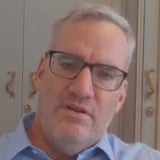By today, the elected president of Niger, Mohamed Bazoum, should be reinstated: This is the ultimate demand of the West African economic community Ecowas to the Nigerien officers who had ousted the president. Otherwise they will intervene militarily. But the ultimatum seems to pass without consequences. Sahel expert Ulf Laessing puts it into perspective.
SRF News: Why is the threatened military action not taking place?
Ulf Laessing: So far, Ecowas has only intervened in countries like Gambia, where the government invited them. In Niger one would have to use force. Because if the putschists block the runway at Niamey Airport, they wouldn’t be able to fly there at all. And I doubt if Ecowas has the skills to conduct a commando operation with parachutists. In that sense, it was probably more of a threat to build up pressure, but not necessarily to really hit the ground running.
That makes Ecowas seem weak.
Yes, and Ecowas’s reputation is already tarnished. With the coup in Mali, they hesitated for a long time and then imposed sanctions, but no military threat. In Burkina Faso they didn’t impose any sanctions at all. And now sanctions and military threats. And then there were also cases where presidents were tolerated who, contrary to the constitution, wanted to take up a third mandate. So Ecowas has always acted very inconsistently and is therefore not really taken seriously by many Africans.
What do you think is the most likely scenario for how to proceed?
The most likely thing is that the putschists will stay in power and be talked to, pressured to appoint a transitional civilian government and hold elections as soon as possible. If Ecowas tried to reinstate President Bazoum now, you would have a president rescued from abroad. In this respect, it is unlikely that he will return.
It is likely that the putschists will remain in power and that Europe will come to terms with them.
Rather, it is likely that the putschists will remain in power and that Europe will come to terms with them. You need Niger to fight poverty migration and terrorism.
Will the putschists cooperate with Europe?
One has to doubt that. It could also be that Niger drifts towards Russia like Mali and Burkina Faso with their military governments. If Niger now becomes a partner of Russia, it will be difficult for Europe to continue this cooperation. The putschists could put pressure on Europe and say we are now reopening this migration route, the transit route to Libya, which the previous government closed. Western military cooperation will then probably not continue either. Then the security situation will deteriorate and jihadists should benefit from it.
Niger has long been portrayed as an anchor of stability in the region. Was it really?
Niger as an anchor of stability was a big illusion. The idea of Niger came up when Mali started having problems with Western troops. Niger has always been one of the poorest countries in the world, where the state has little presence outside of the capital. It was an illusion to believe that this could be an anchor of stability.
Niger as an anchor of stability was a big illusion.
Hundreds of millions in aid have been sent to Niger in the form of projects, both military and civilian. But there has been constant criticism from people who say it is too much, too uncoordinated, and encourages corruption.
Daniel Glaus conducted the interview.
